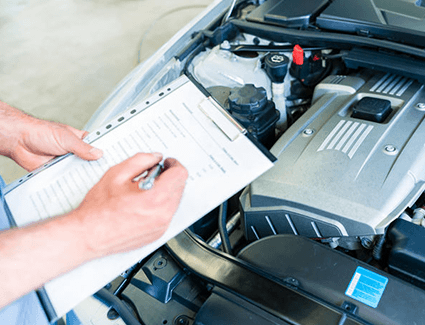

One of the key aspects of being a car-owner is keeping your ride healthy and in top condition. That way, not only do you have a better driving experience, but your vehicle also lasts longer and better holds its value. There are numerous things drivers can do to their car as part of preventive vehicle maintenance that keeps their car running better for longer. Below, you'll find five things we think you should know about preventive vehicle maintenance and what you can do to keep your vehicle happy and healthy.

5. What Is Preventive Vehicle Maintenance?
First, let's start with the basics of preventive vehicle maintenance. What exactly does it mean? Preventive vehicle maintenance encapsulates the simple and affordable measures that drivers can do to keep their vehicle running in top condition for a longer period of time. Some examples of preventive vehicle maintenance procedures include changing your vehicle's oil, replacing the cabin filter, rotating your tires, checking your battery, and more on a regular basis. These small, but consequential, tasks keep drivers informed about key elements of their car and its performance. Basic maintenance is also an important part of heading off safety concerns before they become hazardous.

4. Why Is Preventive Vehicle Maintenance So Important?
There are two key reasons why you should stay up to date with preventive vehicle maintenance on your car: safety and value. A car, especially a new one, is an investment worth a lot of money, and proper preventative maintenance is a key part of maintaining as much value as possible. Think of every dollar and hour you spend maintaining your vehicle as an added investment towards the value of your car for yourself as well as its resale value. Another reason for regular preventive maintenance is safety. If you don't perform regular preventive vehicle maintenance, problems within your car can go unnoticed or grow from easily-fixable to catastrophic before you even realize there's anything wrong. Stay on top of your vehicle's preventive maintenance, and you won't be surprised with any costly replacements or repairs.

3. Expert Multi-Point Inspections
Regular inspections of your vehicle by certified technicians like those at our Chevy dealership are the best and easiest way to stay up to date on your vehicle's maintenance. But, did you know that some inspections can be done yourself? Take a look at your owner's manual to learn how to properly inspect things like your car's fluid levels. Get a cheap tire pressure gauge and check your tire pressure monthly. Use a penny to check the tread on your tires. All of these are simple, quick, and important inspections you should do regularly both for your own safety and to protect the value of your vehicle.
2. Which Fluids Should I Check In My Vehicle?
We mentioned that as part of an inspection, you should check your vehicle's fluids to make sure they're at the right levels. But, which fluids should be checked? Well, it's always good to start with the owner's manual, which should give a recommendation for which fluids to check and how often. Some common fluids that are simple an important to check include antifreeze coolant, oil, and power steering. Many models have visible tanks or dipsticks available with helpful notches or guides for drivers to refer to, and always refer to your owner's manual if you're unsure. What's most important when it comes to your car fluids is that you should never ignore a leak from your car. Any fluid escaping your vehicle could be a sign of more significant damage or lead to further problems.
1. How Often Does My Car Need Preventive Maintenance?
As we said before, there are a number of maintenance measures drivers can do every month to keep their car in good shape like checking fluids and tire pressure before topping off as necessary. Replacing your engine air filter every fifteen months or so is generally a good idea but refer to your owner's manual for a more specific time range. We also recommend checking the lights inside and outside the car monthly. Rotating your tires is a great way to maintain an even tread and prolong the life of your tires. Generally speaking, rotating your tires twice a year is a good idea but refer to your owner's manual for a sharper recommendation. In all cases when it comes to vehicle maintenance, it's better to be overly-cautious.
Related Articles
- Things to Know About Checking the Fluids in Your Vehicle
- Things to Know About Automotive Belt & Hose Replacement
- Things That are Included with a Tune Up


Contact
2855 Maple Ave Ne
2855 Maple Ave Ne
Salem, OR 97301
- Contact: (503) 877-2943